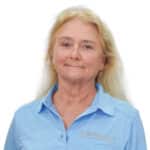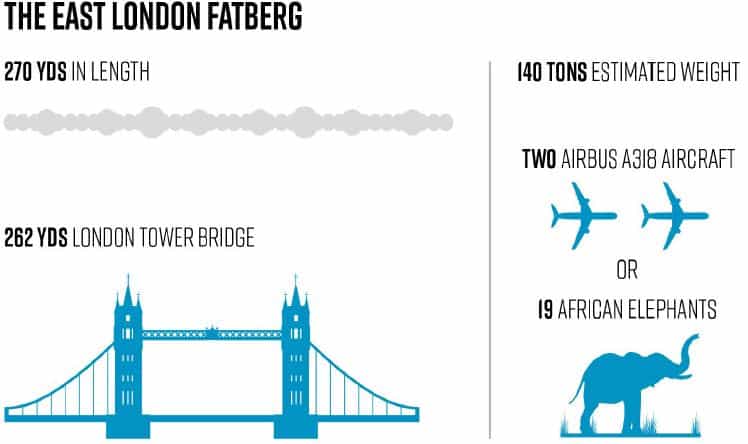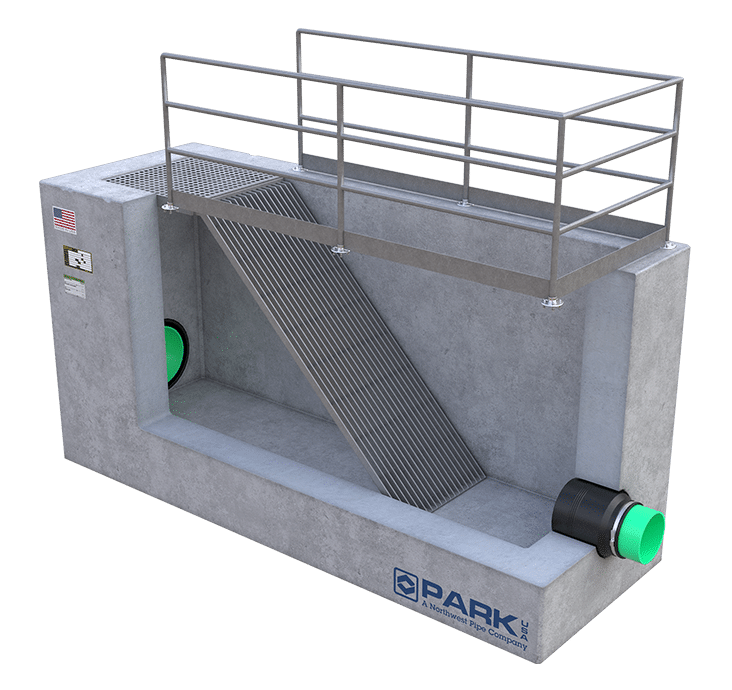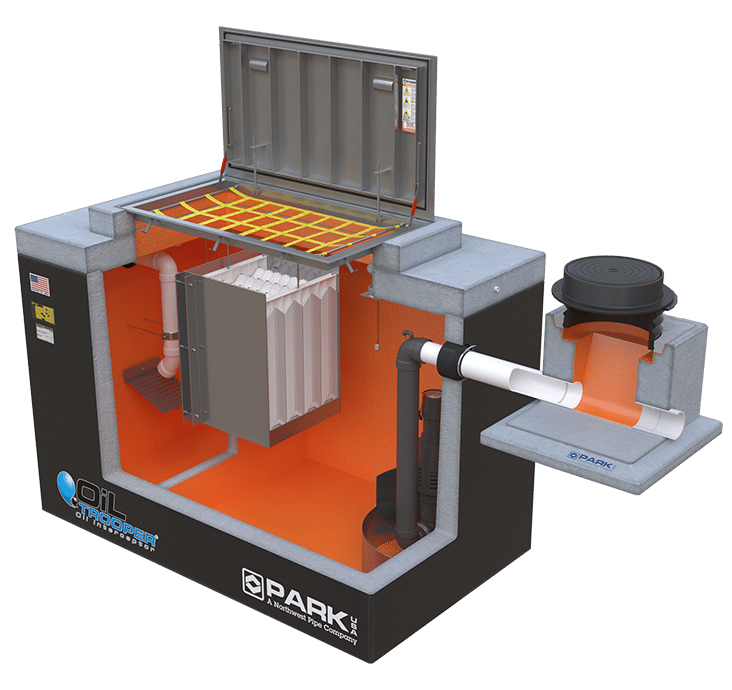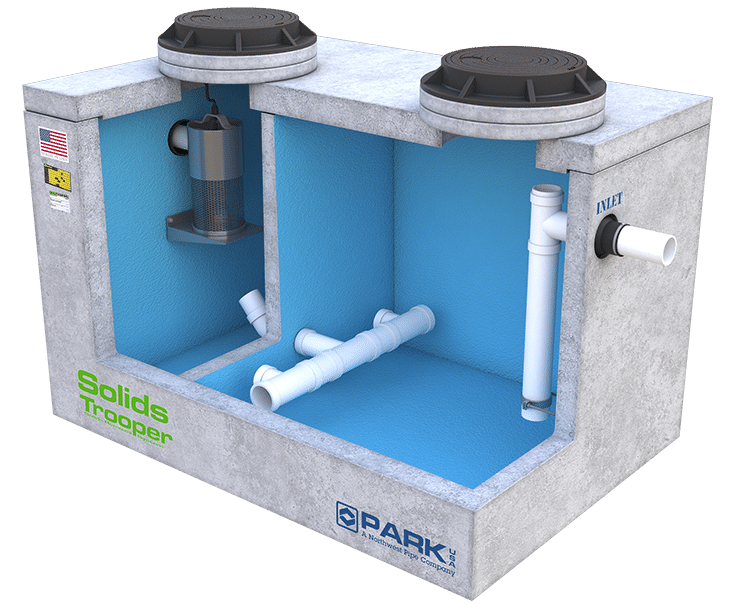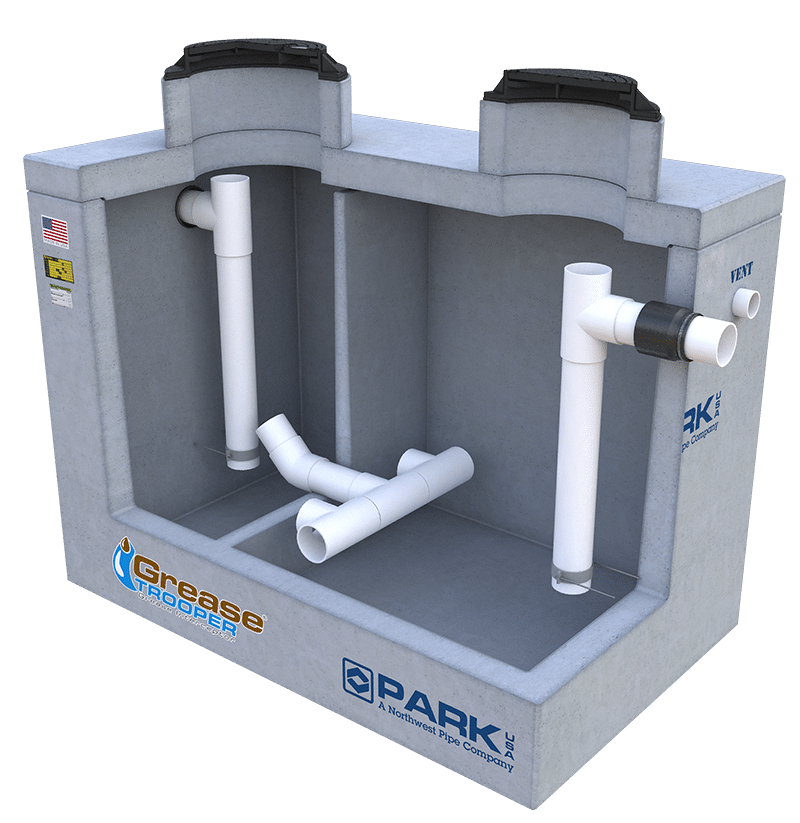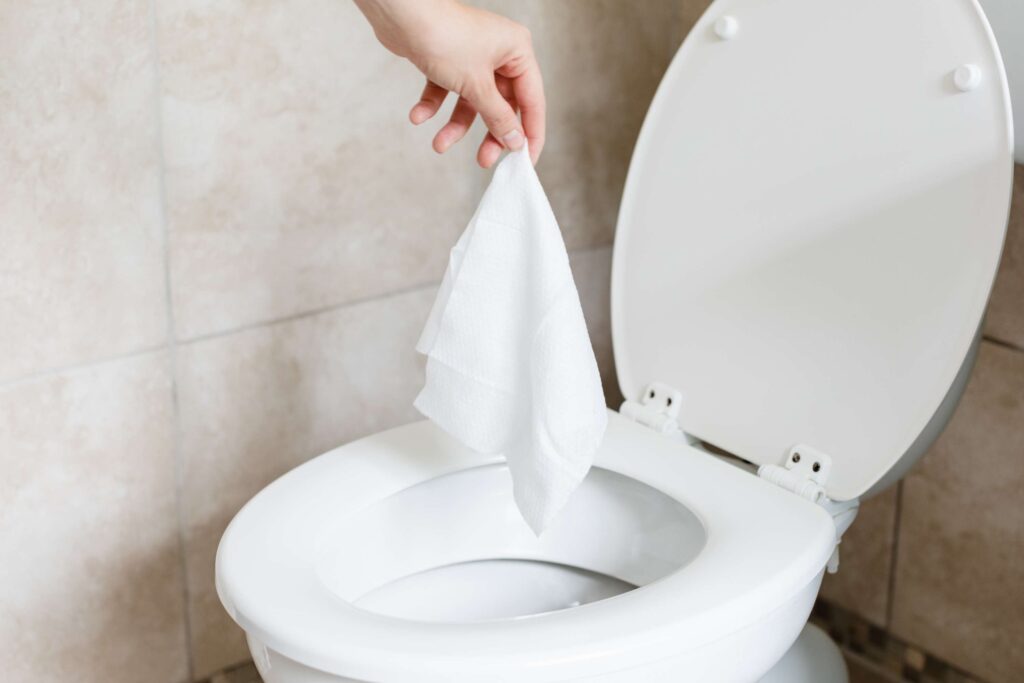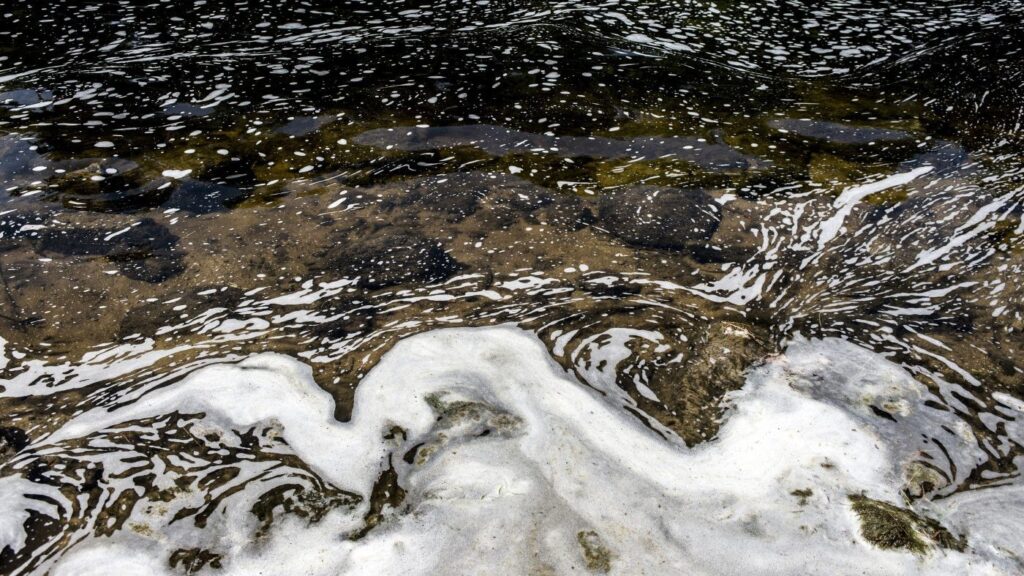Background
According to the American Society of Civil Engineers (ASCE) 2017 Infrastructure Report Card, nearly 240 million Americans, 76% of the population, rely on the nation’s 14,748 treatment plants for wastewater sanitation. By 2032, ASCE expects that 56 million more people will connect to centralized treatment plants, rather than private septic systems, a 23% increase in demand. In the U.S., there are over 800,000 miles of public sewers and 500,000 miles of private lateral sewers connecting private property to public sewer lines. All these conveyance systems are susceptible to structural failure, blockages, and overflows. The U.S. Environmental Protection Agency (EPA) estimates that at least 23,000 to 75,000 sanitary sewer overflow (SSO) events occur in the United States each year.
Fat, oil and grease, commonly referred to as FOG, contributes to approximately 47% of these SSO spills. Typical sources of FOG include: food scraps, meat fats, plant oils, cooking oil, butter, margarine, sauces, gravy, mayonnaise, salad dressing, baked goods, dairy products and deepfried foods. Other sources include body oils, lotions, oily residue from laundering and lipid-soluble hydrocarbons.
Problem
Over time, the FOG mixes with other constituents such as calcium, sodium and phosphorus, found in the sewage, forming a hard soap like compound. When this compound mixes with nonbiodegradable solids, such as wet wipes, dental floss, diapers, makeup pads, hair and other types of personal care products, a “fatberg” is formed; a congealed lump of non-biodegradable solid matter.
Fatbergs are very problematic and are becoming more common. They have been identified thoughout the United States, Europe and around the world. According to Charleston, SC officials, a fatberg stretching 12 feet long, 36-inch-wide, weighing approximately 2,000 pounds was removed from their system in 2018. Macomb County, MI public works removed a 100-foot-long fatberg found in an 11-foot diameter pipe called the Lakeshore Interceptor. The pipe, located about 50 feet below ground, runs for 7 miles, serving Clinton, Harrison, Chesterfield and Lenox townships in Michigan. Officials in Baltimore, MD identified a giant lump of FOG and wet wipes that caused an overflow, spilling nearly 1.2 million gallons of sewage. The fatberg blocked approximately 85 percent of a 24-inch-wide, 100-year-old pipe. Another notorious example is a large fatberg found in 2017, known as the Whitechapel fatberg, that was 270 yards long and weighed 140 tons. Portions of the Whitechapel fatberg have been placed in the Museum of London for public viewing.
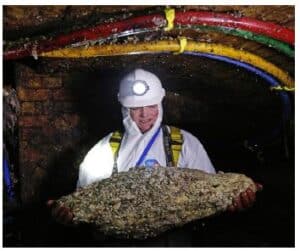

The cleaning and removal of fatbergs is costly in addition to contributing to sewer clogs and backups.
For example:
- Clinton Township, MI cleared a single 100-foot long fatberg found in an 11-foot diameter pipe at a cost of $100,000.
- Baltimore, MD cleared a single 20-foot fatberg at a cost of $60,000.
- Ft. Wayne, IN has spent half a million dollars a year cleaning grease out of sewers.
- New York City spent $18 million fighting fatbergs over a 5-year period.
- London spends up to $63 million (£50 million) annually removing fatbergs from city sewers.
How to Reduce or Prevent the Formation of Fatbergs?
The only items that should enter a sanitary sewer system are the three “P’s”: pee, poop and paper. The elimination or the reduction of non-biodegradable solids in addition to FOG is necessary to prevent or reduce the formation of fatbergs. If non-biodegradable solids enter the system, then the size of the solids need to be no greater than half an inch (1/2”), so they will flow through the pipe and not settle.
Solution
ParkUSA® offers a wide variety of infrastructure products to address FOG and non-biodegradable solids, from interception, shredding, and screening to system repair.
GreaseTrooper® is a family of gravity interceptor devices designed to reduce the amount of FOG, a major contributor to fatbergs. Grease interceptors work on the buoyancy principle. Fats and oils are 10 to 15 percent less dense than water and do not mix with water. Thus, fats and oils float on top of water. When wastewater enters a grease interceptor, the velocity is reduced enough that wastewater is given time to cool and separate into 3 layers. The fats and oils rise to the top inside the interceptor and are trapped using a system of baffles. Solids settle at the bottom, and the separated clear water escapes under an outlet baffle. Grease interceptors can also have strainers for collecting solid debris, which reduce the quantity of solids that settle at the bottom of the interceptor.
The Grinder Assembly system is an “In-Line Grinder” or “Open Channel Grinder” recommended for use on gravity-flow sewer lines which may experience high solids that can “clog” the sewer piping. Grinders shred a wide variety of materials including sanitary wipes, rags, wood, paper, shoes, sludge and more. These units are proven to reduce pump clogging, protect process and dewatering equipment, and prevent fatbergs to keep wastewater systems running properly. Famous grinder brands include: Grundfos (Sewer Chewer), Franklin Miller, and Vogelsang.
The BarScreen™ system is a stationary screen system used for wastewater applications. Bar screen assemblies are used in open channel flow applications to separate & detain course debris and contraband which could lead to fatberg formations. As opposed to expensive automatic rake screens, bar screens can be more economical.
The LintTrooper® is used in commercial and institutional laundries to remove excessive amounts of lint and silt that may interfere with the proper drainage and treatment of wastewater. Local plumbing codes require the installation of a lint interceptor to pretreat the wastewater. The LintTrooper is an interceptor that consists of a multi-compartment basin and unique technology for lint and sediment separation. Typical applications include commercial /institutional laundries, dry-cleaners, and textile operations. The wastewater discharged from these facilities usually contains high quantities of lint, silt, dissolved and suspended solids that can contribute to fatberg creation. The LintTrooper is compliant with both UPC and IPC plumbing codes and can be equipped with debris screening technology that prevents string, rags, buttons, and other materials from entering the public sanitary sewer system that are major contributors to fatbergs.
The SolidsTrooper® is a solids interceptor that can be used in commercial establishments to collect and hold excessive amounts of solid substances found in wastewater. A solids interceptor should be installed in areas, as determined by the Authority Having Jurisdiction (AHJ), where pretreatment of waste streams is necessary. Some AHJs require the addition of screens or baskets that prevent solids greater than one-half inch (1/2”) in diameter from entering the sanitary sewer system. In some cases, project requirements call for even finer separation. The SolidsTrooper is a solids and sediment interceptor that consists of a multi-compartment basin and unique technology for solids and sediment separation. Typical applications for Solids Interceptors include food processing, zoos, ag barns, healthcare, glass bottlers, dumpster areas and manufacturing facilities. Waste discharge loadings from these facilities contain solid substances like waste grindings, potato peels, rice, aquarium gravel, animal solids, glass, trash, dental waste, jewels, plaster, hair, ceramic waste, fish bones and meat trimmings. The SolidsTrooper is compliant with both UPC and IPC plumbing codes. The SolidsTrooper utilizes debris screening technology that prevents formation of fatbergs and promote maintenance-free sewer systems.
The OilTrooper® is a sand-oil interceptor that consists of a multi-compartment basin and patented enhanced separation technology for sediment and oil separation. Typical applications include vehicle maintenance and washrack facilities, fueling depots, industrial areas, parking lots, and storm water runoff. The OilTrooper sand-oil interceptor separates and detains to hydrocarbons, therefore minimizing fatberg creation in sewer systems. The GOTrooper® is a Grit-Oil Interceptor that pretreats cosmetic wash wastewater. The unit can be utilized in gravity flow or pumped-driven systems. The wastewater flows into an inlet chamber, passes through a baffle and oleophilic coalescing plates to separate oil and solids. The discharging effluent comprises the clearer water underneath the floating oils. The GOTrooper grit-oil interceptor is used to separate and detain hydrocarbons, therefore minimizing fatberg creation in sewer systems.
The ManholeOPS™ (overflow protection system) is a leakproof sewer manhole solution that is suitable for preventing sanitary sewer overflows (SSO) due to system surcharging and infiltration from flood waters. ParkUSA offers customized systems to address SSO and fatberg challenges for public sewer systems.

